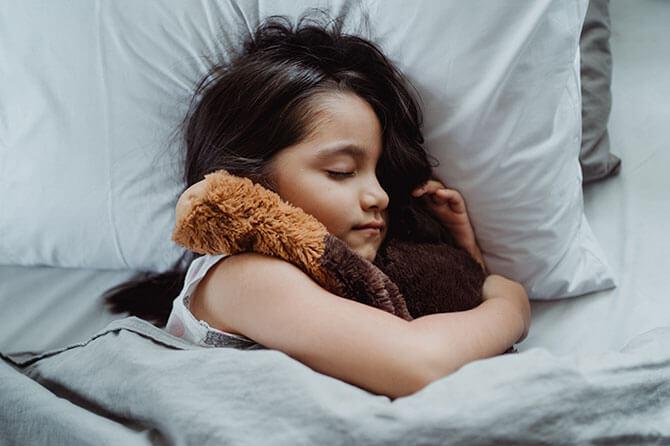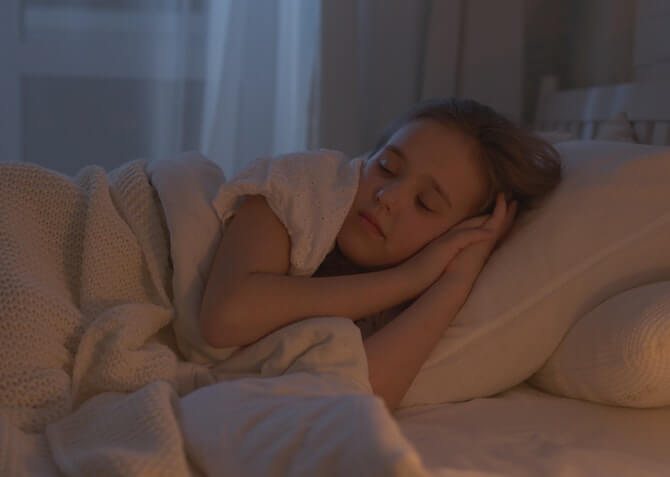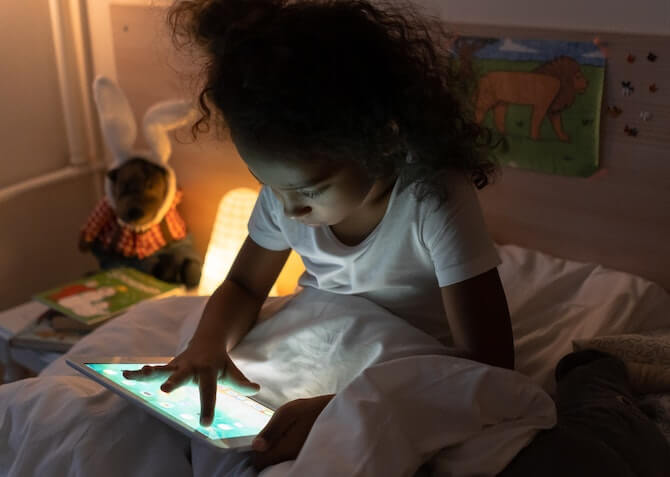
Back to School – Sleep Routine after the Holidays
As we begin September, parents everywhere are getting ready to wave goodbye to summer and welcome a return to normality.
For six weeks the rules have been relaxed and the kids have enjoyed lazy summer days, late bedtimes, and consequently, later mornings. Without some preparation, the return to school routines can be a big shock to the system. Being prepared is incredibly important when it comes to sleep and your sleep routines.
Back to basics
Remember everything you read as a new parent about setting a bedtime routine? Well, the same rules apply here no matter what the age. Telling a child to sleep doesn't guarantee they will. You should create a suitable bedtime routine that works for their age and helps them sleep.
Whichever steps you (or they) use, they need to be the same each night and start somewhere between 30 and 60 minutes before the actual bedtime – e.g. bath, book and bed. Soon, the body will use these activities as a cue for feeling sleepy.
The National Sleep Federation does recommend reading before bed as it helps you fall asleep faster and have better sleep quality.
Sleep matters for kids
Getting a good night's sleep is incredibly important for your child's well-being. Children need more rest than adults because their bodies are still growing, and not getting enough sleep can affect their development.

It can even lead to health problems like exhaustion and obesity can set in because of the lack of sleep.
In addition, poor sleeping patterns can cause issues at school. We're not just talking about falling asleep in class out of boredom, but a long-term effect on their academic performance.
There are many studies, including this one from McGill University and Douglas Mental Health University Institute, that have found direct links between a regular sleep pattern and better grades.
For kids who are at a critical stage of their education, getting enough shut-eye could potentially impact their future.
Early to bed.
For a successful start to the school year, it is crucial to gradually change sleep and wake-up routines. Start a routine of getting to bed earlier and waking up earlier as soon as you can.
It's tempting to keep the relaxed routine until the end, but it will be worth it.
That’s not to say they (and you!) can’t continue to enjoy relaxed daytime – it’s the waking and getting out of bed that are important.
Many older kids will have developed an afternoon nap routine over the summer. To prevent them from nodding off in the middle of class now is also the time to knock that on the head.
Different age groups need a different amount of sleep. The idea is that by the time the first day of school rolls around the kids are going to bed and getting up at the right time, ensuring they’ve had the right amount of sleep in the middle.
Create the right environment
The basic requirements for a good night's sleep are a dark, cool room and a comfortable, supportive bed.

Many parents forget that the mattress that served their 5-year-old perfectly well is unlikely to provide the right level of support for a pre-teen or teenager.
Investing in a good quality, durable, supportive mattress pays dividends in the long run. For an affordable, high-quality range of memory foam mattresses, check out Dormeo's extensive range of quality mattresses.
How to help your kids re-adjust after the summer holidays
So, we know that sleep is vital to your child's health and school life, but how can you help them adjust once school begins? Here are our top tips.How much sleep do they need and adjusting early
Before you can decide when they should be going to bed and waking up, you need to know what is a decent night's rest for your child.
The NHS has healthy sleep recommendations for different ages, so you will need to use these when working out when a suitable bedtime will be.
Kids always like to stay up a little later during the summer, and an effective way to help them slowly re-adjust is to bring bedtime forward by 15 minutes in the week before school starts.
This way, you can get them to sleep earlier without them feeling like they are losing out on the last part of the holiday.
Older children will see straight through this ploy, so be sure to have a grown-up conversation with them about the importance of resting for school.
Most teenagers love to sleep, so convincing them they need to spend more time under the duvet shouldn't be too difficult.
You are what you eat
It’s all about creating the perfect conditions for sleepiness.
Heavy food, sugary snacks, and caffeine too close to bedtime are all likely to prevent a child from feeling sleepy at the right time. With regard to caffeine intake, some research suggests restricting caffeine after noon.
Other studies suggest we should avoid it entirely for 6 hours before bed. Whichever you decide to go for, remember to check the caffeine content of fizzy drinks carefully – especially those marketed as ‘energy drinks’.
Get mean with their screens
The average age a child gets their first mobile phone is now around 10 or 11, so kids are now glued to technology earlier than ever before. However, there are growing concerns that this could be affecting the quality of sleep among youngsters.

In fact, more than two hours of screen time before bed was linked to getting less rest by a 2015 study by BMJ Journals, which looked at teenagers in particular.
One of the main problems with screens (especially phones and tablets) is that they emit something called "blue light". Blue light is a wavelength of light that disrupts the brain's signals telling the body that it's time to sleep.
When your children go back to school, you should consider reducing their screen time in the hours leading up to bedtime to ensure they get the best sleep possible.
If your kids have their own screens, make sure they are turned off about 90 minutes before they are expected to sleep, which will give their brains time to switch off too.
If you suspect there may be some sneaky screen time going on, most handheld devices now have a filter built into them that can be switched on to block blue light — the type that affects sleep the most.
These options can be set to a schedule so that the filter starts to work hours before bed.
Don't allow any caffeine or sugar before bed
Make sure your child avoids sugary or caffeinated food and drinks like cola, chocolate, or coffee before going to bed.
On a school night, you don't want a child who is too energetic or restless and not calming down for bed.
Try and get them used to not having any snacks late in the evening and they will have an easier time getting to sleep.
That wraps up our top tips for helping your kids get a good night's sleep before school. Follow our advice and they will wake up fresh and ready to learn throughout the term.
If you have any questions or would like some advice about kitting out your child's bedroom, don't hesitate to get in touch. Our blog and advice centre are also great places to get extra information.







Leave a Reply